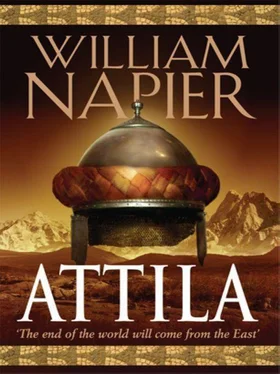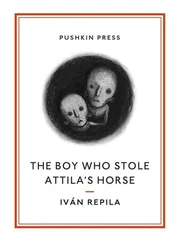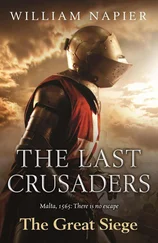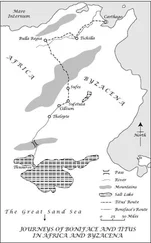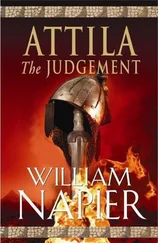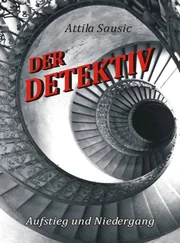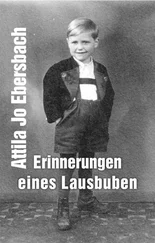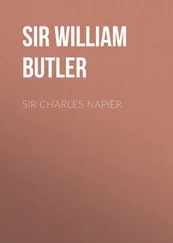William Napier - Attila
Здесь есть возможность читать онлайн «William Napier - Attila» весь текст электронной книги совершенно бесплатно (целиком полную версию без сокращений). В некоторых случаях можно слушать аудио, скачать через торрент в формате fb2 и присутствует краткое содержание. Жанр: Исторические приключения, на английском языке. Описание произведения, (предисловие) а так же отзывы посетителей доступны на портале библиотеки ЛибКат.
- Название:Attila
- Автор:
- Жанр:
- Год:неизвестен
- ISBN:нет данных
- Рейтинг книги:5 / 5. Голосов: 1
-
Избранное:Добавить в избранное
- Отзывы:
-
Ваша оценка:
- 100
- 1
- 2
- 3
- 4
- 5
Attila: краткое содержание, описание и аннотация
Предлагаем к чтению аннотацию, описание, краткое содержание или предисловие (зависит от того, что написал сам автор книги «Attila»). Если вы не нашли необходимую информацию о книге — напишите в комментариях, мы постараемся отыскать её.
Attila — читать онлайн бесплатно полную книгу (весь текст) целиком
Ниже представлен текст книги, разбитый по страницам. Система сохранения места последней прочитанной страницы, позволяет с удобством читать онлайн бесплатно книгу «Attila», без необходимости каждый раз заново искать на чём Вы остановились. Поставьте закладку, и сможете в любой момент перейти на страницу, на которой закончили чтение.
Интервал:
Закладка:
The three other boys dismounted in an instant, and Aetius scrabbled desperately to drag his spear from its sling. At any moment the boar might tire of tearing the horse’s guts from its stomach and turn its beady little eyes and monstrous tusks on them. Or on the other boy, trapped and helpless beneath his dying horse. If the boar trotted round and began to work on him, he would be dead in seconds.
The boar stopped, and there was silence in the glade but for the thrashing of the dying horse. The boar raised its massive head. Aetius thought it might weigh four hundred and fifty, even five hundred pounds. It was the biggest boar he had ever seen; bigger than any in the arena, in the forests of Silestria, anywhere. The stench of it filled the forest glade with a thick, dark musk, and its cruel off-white tusks, gleaming through the dripping blood and the tendrils of torn intestine from the disembowelled horse – nine inches long was perhaps an underestimate.
The boar stared at them for a little while longer, its flanks heaving furiously as it got its breath back, unhurried and unafraid. Then it sensed movement beside it, and suddenly was afraid again, and hot with rage. It turned to gore the horse. But it wasn’t the horse, it was something else.
Snuffing the air, the boar galloped round to where Attila lay trapped and twisted, lying there helpless in last year’s leaves, and moved furiously towards the fallen boy with lowered tusks.
The Celtic slaveboy moved as fast as a forest animal. He slithered in the horse’s spilt guts, scrambled over the mound of its open belly and thrust his sword into the boar’s flank, just as the first swipe of its tusks opened up a deep cut across Attila’s back. The blade went in less than an inch, but it was enough. The boar turned on him, screaming with fury, and drove straight at him. But Cadoc slipped back over the dead horse and the enraged boar drove its tusks uselessly into dead flesh again. Then it felt a far deeper, more terrible wound along its back, penetrating deeply into its tough old bristling hide. It whipped round on its neat little hooves and saw Aetius. The Roman boy pulled the spear free again and braced his back against an ancient beechtree. The butt of his boar-spear was braced deep among the roots, for a boar that size would knock a man and spear aside like gossamer if they were not rooted in the ground like the roots of an oak.
Out of the corner of his eye, Aetius saw the Celtic slaveboy about to scramble over the horse again and try to attack the boar from behind.
‘No, Cadoc!’ he cried. ‘Let him come to me.’
The boar eyed Aetius a moment longer, its ears deaf to their human cries, filled only with the furious bang of blood in its brain. Then it charged.
The thick ashen spear snapped in two like a twig with the force of that five-hundred-pound weight, and Aetius threw himself aside only just in time. But in its mad unheeding charge, the great boar had also driven its own chest deeply onto the spearhead, which was buried up to the crossbar in its lungs and killing it. The boar reeled back, squealing, and fell to one side, slashing at its invisible tormentors, bright pneumonic blood frothing and spraying furiously from its champing jaws. It struggled to its feet again, but then its hind legs collapsed, its forefeet still planted unyielding in the soft forest floor.
Aetius crawled to his feet, dazed and shaking, and saw two boys – the two slaveboys, both acquainted with the lash and chain of their masters – creep towards the dying boar from either side, small blades in their hands. Aetius shouted ‘No!’ to them, for the boar was dying anyway, and yet, even in its last moments, it might turn that massive, bristling head and slash a man open from navel to throat. But the two slaveboys for once ignored the command of the master, and moved in closer, carefully avoiding that slowly swinging, bloody head. As one, they pounced forward and drove their blades into the creature’s body, Cadoc’s blade going deep into its tough, muscled neck, and Orestes’ slipping between its ribs. Still the boar swung its head, butting Cadoc and tossing him back into the leaf litter as if with mild irritation, but making no contact with its terrible tusks. Its mad ferocity was draining away now with its blood. It lay down in the leaves, and gave another heave of its blood-soaked flanks, and then after a long while another. And then it died.
Aetius steeled himself and tried to shut his nose against the stomach-turning reek of the disembowelled horse. He grasped it by its hind legs, ready to drag it off the fallen boy, and shouted orders to the slaves to take hold likewise. But from the other side he heard a cry, and there was Attila. He had hauled himself free, and although he clutched the back of one thigh, where he felt he had twisted a tendon, and he could sense the back of his shirt soaked where the boar’s tusk had razed through the skin of his back, nevertheless he was only slightly hurt, and too full of the furious thrill of the danger to feel real pain yet.
In that instant the mood of the four boys changed, and they were suddenly dancing around in the forest glade as four equals, slapping one another’s hands and punching the air, whooping like the most barbarous tribesmen in all of Scythia. They hopped and hollered round the huge, bloody mound of the slain boar, and seized their swords and their broken spears again and stabbed at it ceremonially as they circled. They shouted defiance at the boar’s ferocious soul, and even at the unknown gods who made such a creature of blood and horror and set it on the earth with a smile to be a terror and a torment to all men. They smeared themselves and one another with boar’s blood, and then a primordial paste of boar’s blood and moist forest earth, and howled at the high blue sky glimpsed through the waving light green leaves of the springtime canopy. Four different languages chaotically mingled, Greek and Celtic, Latin and Hun, but all crying the same angry defiance, the same bloodstained defiant triumph over life and death.
At last they fell exhausted to the forest floor and gradually regained their breath, their composure, and their awareness of difference and hierarchy. As their hot blood cooled, and their taut-strung limbs relaxed, they even said prayers, each of them. They prayed to the spirit of the boar, begging forgiveness, and to those nameless spirits behind the curtain of the world who made the boar, who bent and formed its curved spine in their iron hands, set with black bristles, who made its thundering hooves, and shaped its terrible ivory tusks.
Attila ordered the two slaveboys to make a fire, and began to slash the boar’s flanks, pulling away the thick hide to reveal the dark pink flesh, the meaty haunches of its powerful hind legs. They spitted the meat on greenwood twigs and roasted them over the fire. Despite the boar’s vast size, the four ravenous boys still made considerable inroads into its carcass, before they sank back into the leaves, unable to eat a mouthful more, and fell asleep.
When they awoke it was growing dark. They warmed themselves by building up the fire, by roasting yet more meat, although none of them felt they could eat another thing, and by taking it in turns to hack at the boar’s massive neck. With only their lightweight swords it was hard work, and each boy hacked himself to the point of sweating exhaustion.
‘But we can’t leave it here,’ said Orestes. ‘They’ll never believe us.’
It was strange that he, like Cadoc, now presumed to speak his opinions before the masters asked for them. But an ease had settled over the four that would not have been possible in court or camp.
Attila nodded. ‘All that meat’s going to waste, anyhow. But we have to take the head back.’
After nearly an hour of hacking and slicing through hide, sinew, muscle and bone, at last the mighty head fell free of the neck. There was some discussion about how to get it back, for the head alone must have weighed nearly two hundred pounds. At last it was decided to build a rough travois of strong hazel sticks, drag the boar’s head onto it, make it secure with more hazel twigs hooped over the top, and haul the travois back to the camp of the Huns, changing ponies every hour or so.
Читать дальшеИнтервал:
Закладка:
Похожие книги на «Attila»
Представляем Вашему вниманию похожие книги на «Attila» списком для выбора. Мы отобрали схожую по названию и смыслу литературу в надежде предоставить читателям больше вариантов отыскать новые, интересные, ещё непрочитанные произведения.
Обсуждение, отзывы о книге «Attila» и просто собственные мнения читателей. Оставьте ваши комментарии, напишите, что Вы думаете о произведении, его смысле или главных героях. Укажите что конкретно понравилось, а что нет, и почему Вы так считаете.
